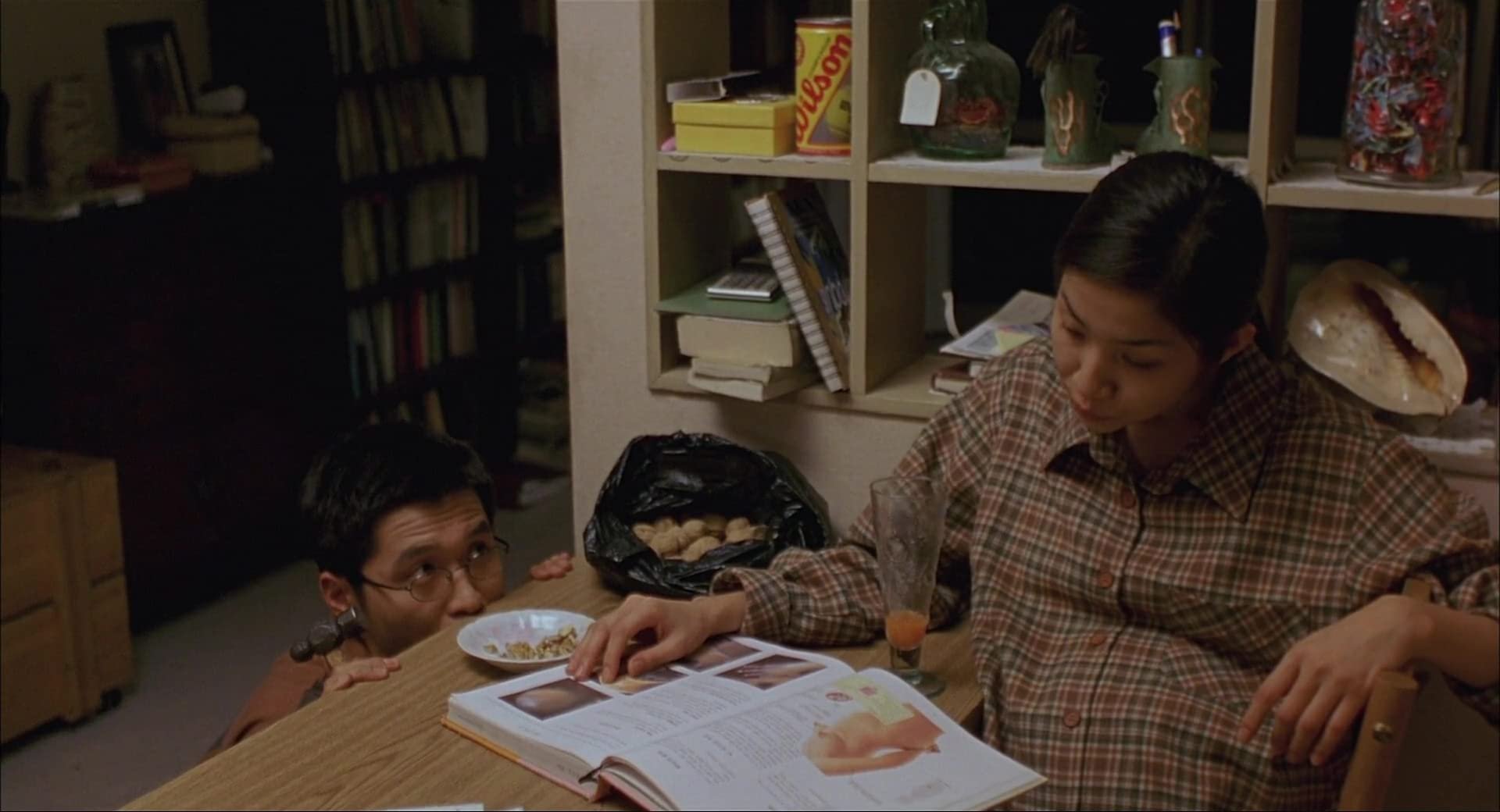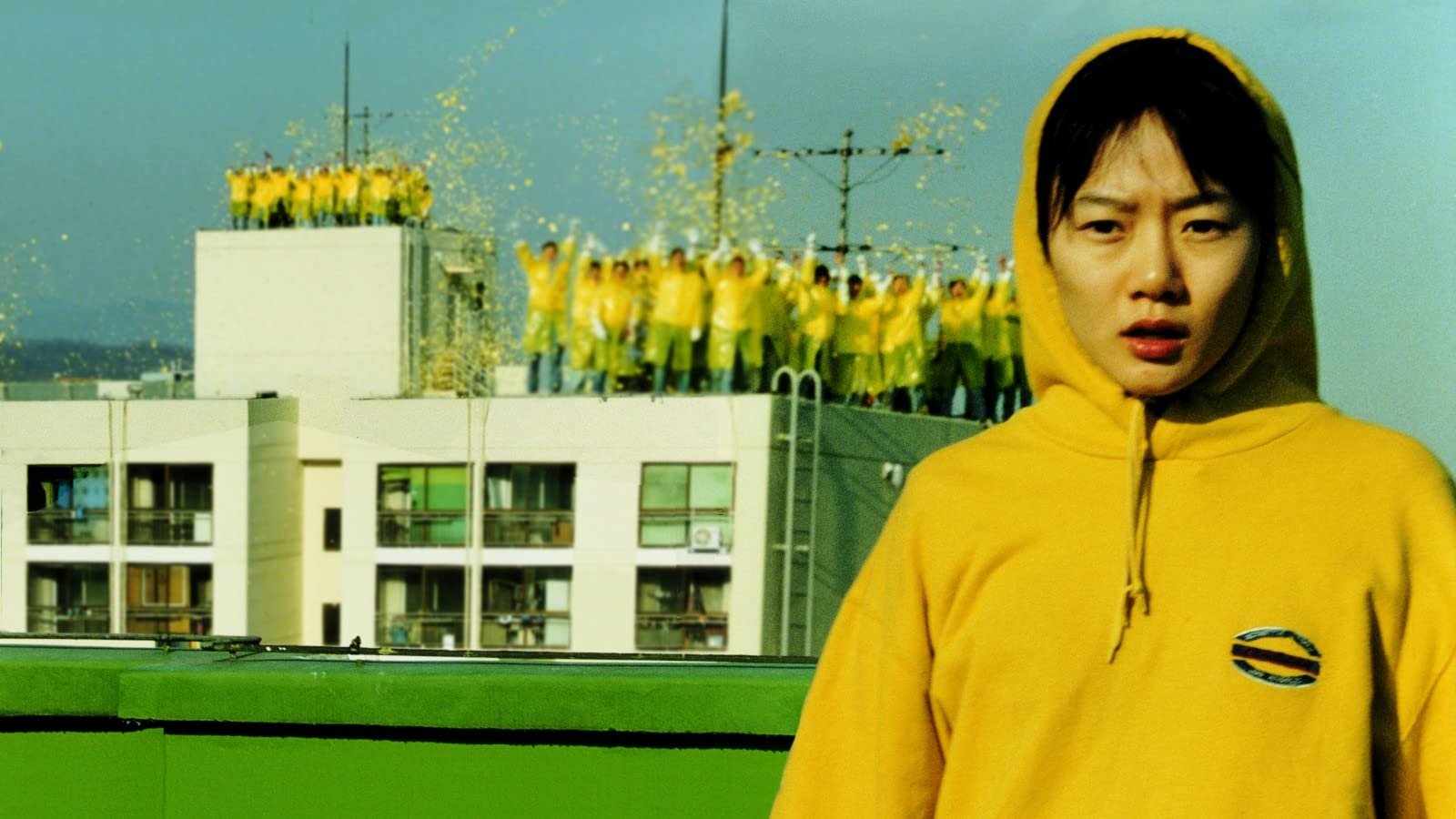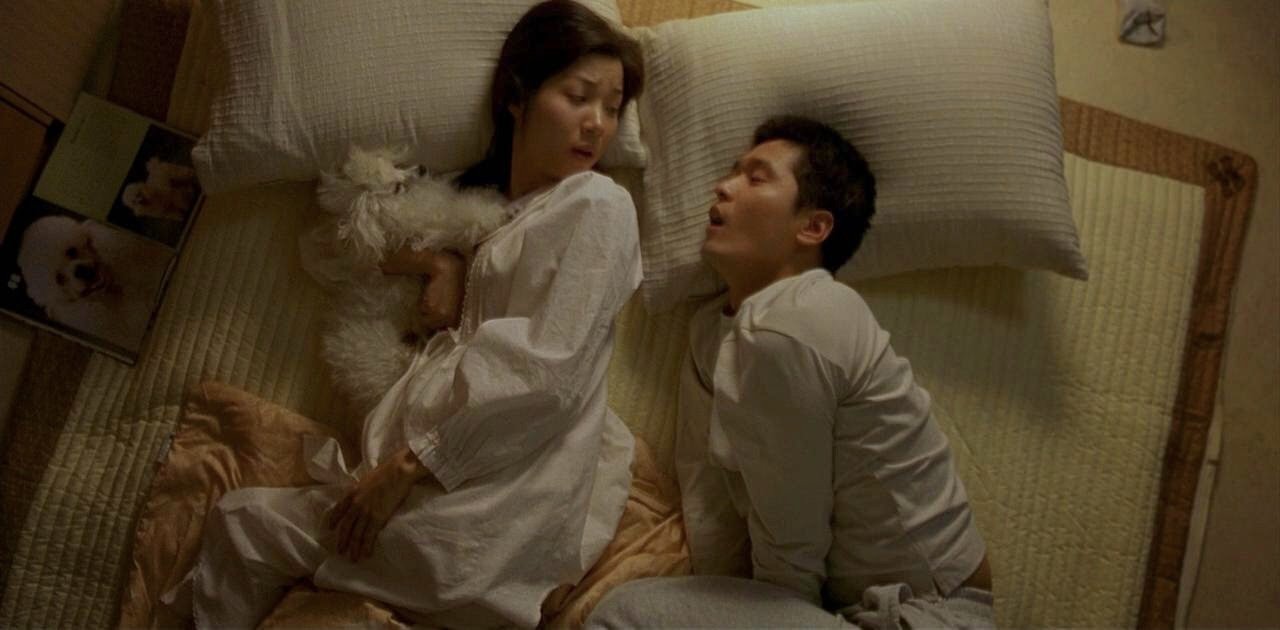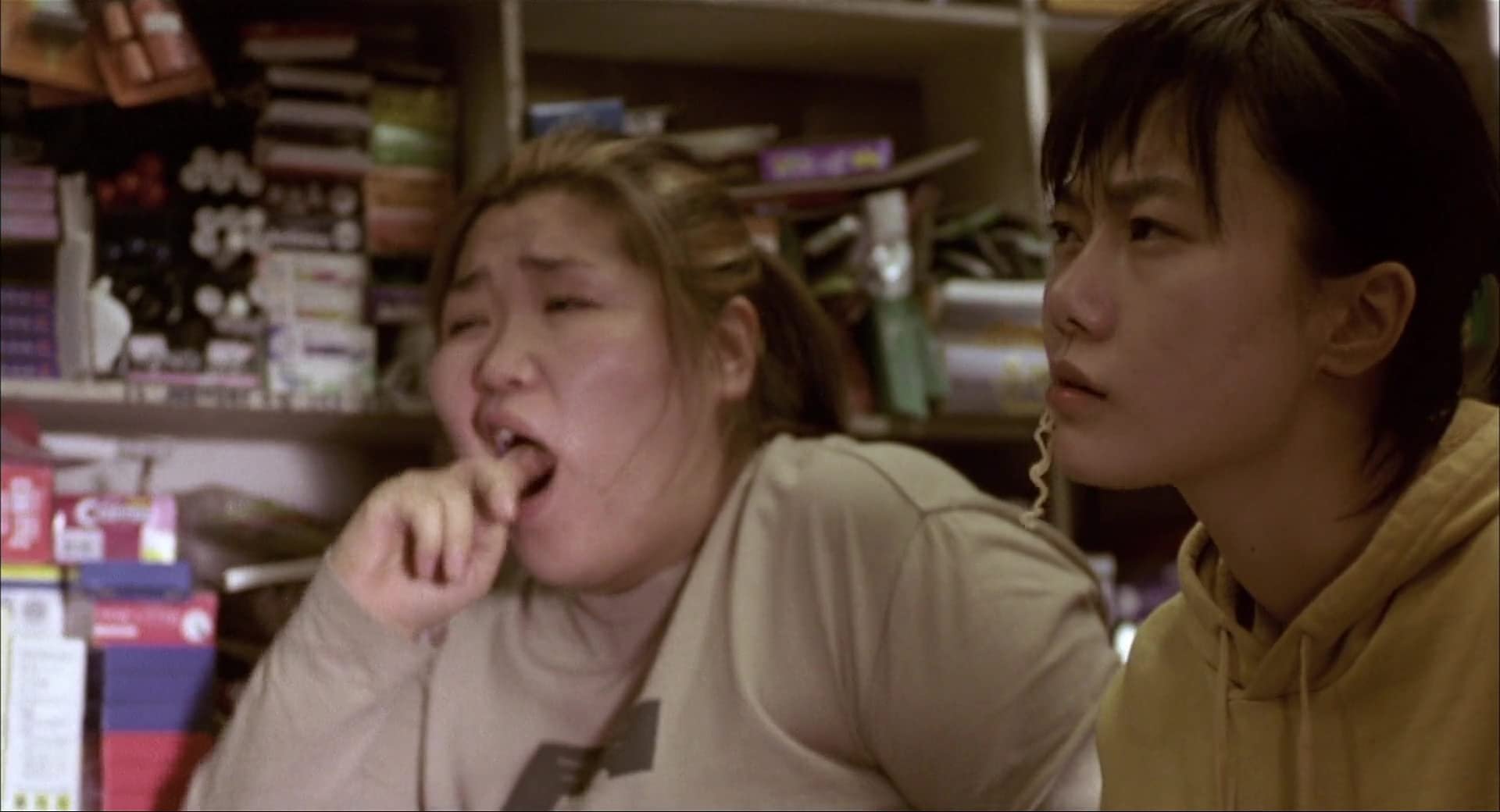Barking Dogs Never Bite (2000)
Director: Bong Joon-ho
Starring: Sung-jae Lee, Bae Donna, Ho-jung Kim, Byun Hee-bong
Primary genre: Black comedy
Lovers of the Bong Joon-ho’s (now) distinct style will find plenty to love in his directional debut, “Barking Dogs Never Bite” (2000). While the beloved South Korean filmmaker has indulged us into more socially conscious stories supported by sharp commentary around the working and human ethics which bound the film’s world, “Barking Dogs Never Bite” is the first step towards an evolutionary scale of artistry that will attract moviegoers around the world for years to come.
Starting his career with a less ambitious (for the lack of a better term) story, the movie features all his known trademarks you would have come to expect (e.g., imposing architecture, isolated main characters, layered storytelling). Dressed heartily with black humor, this comedy centered around missing dogs in a massive apartment complex has reflective undertones about a society that neglects its citizens (before they do it themselves first). Dogs, used as a symbol of status, currency and supply even between the lower socio-economic individuals seem to be having a better life than their owners live in a poetic sense of irony.
Struggling to make means end and lacking a job, our “hero”, a dubious and passive academic is in an abusive relationship with his pregnant wife, hates dogs and has no money to buy out his promotion to professor. This protagonist becomes the key player in a tale of theft, misunderstandings and social allegory which the West rarely offers. Typically in a Joon-ho flick, several elements are usually metaphors for the cast’s state of mind and the story’s progression: cigarettes breaks and dogs represent freedom in a world that relies on self catered interactions to move forward. Bae Donna’s character is also stuck in a thankless position of building management conjuring an interesting dynamic with Sung-Jae Lee’s pair-less academic and complementing the same coin from a different side.
A master at blending genres with extreme efficiency, Joon-ho manages to generate suspense from the simplest of circumstances; an account of Boiler Kim’s (who represents the working and honorable class of South Korea) tragedy feels like something that John Carpenter would direct, echoing similar sentiments in Joon-ho’s own Oscar winning “Parasite” (2019) nineteen years later. When the final resolution comes in the complex parable of human relationships, Bong-ho’s script keeps the audience guessing on whether this will end in tears or laughs simultaneously making it clear where he and his actors stand. Occasionally it does feel smaller in scale and less engulfing in its thematic presentation than the rest of his iconic filmography with with frequent tonal shifts and a not so likeable main character, especially for those who like dogs. But it is the birth of one of the most important voices in cinema which three years later will give us the masterpiece that “Memories of Murder” is (2003).
Solid directional debut
+Solid directional debut
+Sharp social commentary
+Layered approach
+Prelude of better things to come
-Not very likeable lead
-Occasionally uneven tone





